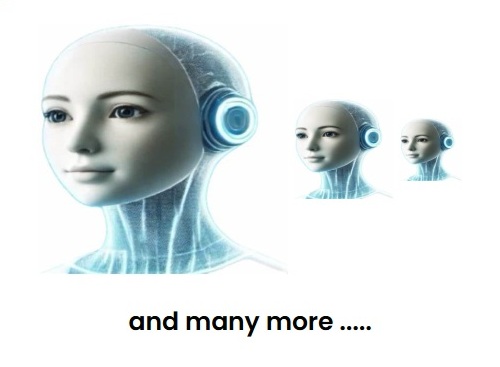
Virtual AI Assistants have revolutionized the way we provide care, support, and connectivity in our daily lives. Seamlessly blending advanced conversational AI with practical applications, these intelligent systems are reshaping eldercare and personal assistance. We offer two options where Residential Care Facilities provide services.
1. SELECT Carousel A ( Residential Care ) 2. SELECT images :
(Note : If you do not find a specific area/field, contact email : info@au.eldercare.services)
Specific services supplied by the Residential Elder Care Facility :
By combining AI with human compassion, residential facilities can provide more personalized, efficient, and engaging care for elder residents while helping staff work smarter, not harder. Notwithstanding the before, ElderCare.Services understand there are also significant challenges which impact the quality of care in elder facilities if not properly managed. Here’s how they influence care delivery:
1. Privacy & Ethical Concerns → Trust Issues
When seniors feel that AI is intrusive or that their data isn’t secure, they may resist using AI-powered health monitoring or assistance tools. This can limit the effectiveness of AI-driven safety systems, making residents more vulnerable to health risks.
2. Adaptability & Learning Curve → Reduced Engagement
If elderly residents struggle to use AI-powered services, or if staff isn’t properly trained, the technology may not be fully utilized. This can lead to frustration, decreased interaction, and missed opportunities for improved care.
3. Cost & Infrastructure Limitations → Unequal Access
Expensive AI solutions may only be available in high-end facilities, leaving smaller or underfunded elder care centers with limited options. This creates disparities in care quality across different institutions.
4. Reliability & Trust → Hesitation in Decision-Making
If AI tools misinterpret data or make errors, caregivers may doubt their effectiveness. In medical scenarios, hesitation in trusting AI recommendations could delay critical interventions, affecting health outcomes.
5. Emotional & Social Impact → Reduced Human Connection
While AI can enhance engagement, over-reliance on AI chatbots or virtual assistants may reduce genuine social interaction. Loneliness and emotional well-being could suffer if human connection is replaced rather than supplemented.
6. Regulatory & Compliance Challenges → Implementation Delays
Unclear regulations can stall adoption of AI-powered solutions, preventing facilities from benefiting from advanced technologies. If compliance isn’t met, legal issues could arise, affecting care quality and innovation.
To ensure AI truly improves elder care, facilities need to balance technology with compassionate caregiving, prioritize training, and maintain ethical standards. ElderCare Services continously monitors its A.I support services and maintains the highest possible ethical standards
1. Personalized Care & Health Monitoring :
2. Enhanced Communication & Social Engagement :
3. Cognitive & Mental Health Support :
4. Operational Efficiency & Staff Support :
5. Safety & Security Enhancements :
6. Transitional & End-of-Life Care Palliative support services :
7. Nutritional & Dietary Support Personalized meal planning :
8. Physical Therapy & Mobility Programs On-site or tele-rehabilitation:
9. Administrative & Financial Assistance Help with insurance claims, billing :
10. Family Engagement & Remote Involvement :
11. Multilingual & Culturally Responsive Services:
12. Grievance Support & Help with Practicing Religion :